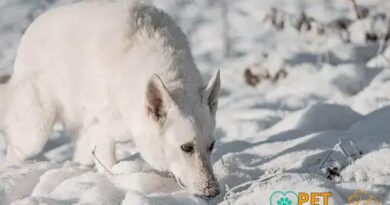What is Japão e cães
What is Japão and Dogs?
Japan, a country rich in culture and tradition, has a unique relationship with dogs that reflects its values and history. The bond between Japanese people and their canine companions is deeply rooted, showcasing a blend of respect, affection, and cultural significance. In Japan, dogs are not just pets; they are considered family members, and this sentiment is evident in various aspects of Japanese life.
The Cultural Significance of Dogs in Japan
In Japanese culture, dogs are often seen as symbols of loyalty and protection. The famous Akita breed, for example, is celebrated for its unwavering loyalty, as exemplified by the story of Hachiko, a dog that waited for its owner at a train station for years after his passing. This tale has become a poignant representation of the bond between humans and dogs in Japan, highlighting the deep emotional connections that exist.
Popular Dog Breeds in Japan
Japan is home to several indigenous dog breeds that are cherished by locals. The Shiba Inu, known for its spirited personality and fox-like appearance, is one of the most popular breeds in the country. Other notable breeds include the Akita Inu, Kishu Ken, and Shikoku, each with its own unique characteristics and history. These breeds not only reflect Japan’s rich heritage but also play a significant role in the lives of many Japanese families.
Dog-Friendly Practices in Japan
Japan is known for its dog-friendly practices, making it a haven for dog lovers. Many parks, cafes, and even some restaurants welcome dogs, allowing owners to enjoy their time out with their furry friends. Additionally, Japan has a variety of pet services, including grooming salons, pet hotels, and even dog spas, catering to the needs of pet owners who want the best for their companions.
Japanese Festivals Celebrating Dogs
Throughout Japan, there are festivals dedicated to celebrating dogs and their importance in society. One such festival is the Inuhariko Festival, where people create and offer small dog figurines to pray for their pets’ health and happiness. These events not only highlight the affection that Japanese people have for dogs but also serve as a reminder of the cultural significance of these animals in their lives.
Training and Care for Dogs in Japan
In Japan, dog training and care are taken very seriously. Many owners invest time and resources into training their dogs, often enrolling them in obedience classes or hiring professional trainers. The emphasis on proper training reflects the Japanese value of discipline and respect, ensuring that dogs are well-behaved and integrated into society. Additionally, pet care products and services are widely available, catering to the health and well-being of dogs.
The Role of Dogs in Japanese Society
Dogs play a multifaceted role in Japanese society, serving not only as companions but also as therapy animals and service dogs. Many organizations in Japan train dogs to assist individuals with disabilities, providing them with greater independence and improving their quality of life. This integration of dogs into various aspects of society showcases the deep respect and appreciation that the Japanese have for these animals.
Dog Ownership Trends in Japan
As urbanization continues to rise in Japan, dog ownership trends have evolved. Many city dwellers opt for smaller dog breeds that are more suitable for apartment living. This shift has led to an increase in the popularity of toy breeds and smaller companions, reflecting the changing dynamics of pet ownership in urban environments. Despite these changes, the love for dogs remains a constant in Japanese culture.
Challenges Faced by Dog Owners in Japan
While dog ownership in Japan is generally positive, there are challenges that owners face. Issues such as limited space in urban areas, strict pet regulations, and the need for proper training can pose difficulties for dog owners. However, the strong community of dog lovers in Japan often comes together to share resources and support one another, fostering a sense of camaraderie among pet owners.



